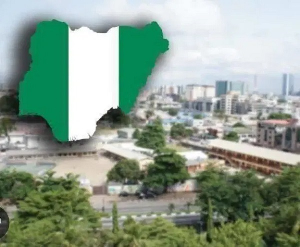Nigeria’s Net Domestic Credit, NDC, has dropped by 12.8% Year on Year, YoY in August 2025 to N98.97 trillion, according to the Central Bank of Nigeria, CBN latest money and credit report.
The NDC is the total value of Bank credit to both the private and public sectors and its decline, according to analysts is a reflection of monetary policy easing as inflation continued to drop.
Vanguard’s analysis revealed that in August 2025, Bank credit to government stood at 23.133 billion while credit to private sector stood at N75.843 billion, bringing the NDC to N98.97 trillion.
Similarly, in the corresponding period of 2024, the Bank credit to government recorded N39.391 billion, while credit to government stood at N74.072 billion, totaling a NDC of N113.463 billion.
On monthly trend for the year under review, the NDC stood at N102.406 billion and increased further by 0.9 % to N103.369 billion in February, while in March, it dropped by 34 % to N68.177 billion.
In the second quarter of 2025, the NDC rose by 49.6% to N102.002 billion in April. In May, it declined by 1.03% to N100.955 billion, while in June it dropped by 3.13% to N97.787 billion. There was no data for July, but in August the NDC increased by 1.2%.
Commenting, Dr Muda Yusuf, CEO, The Centre for the Promotion of Private Enterprise, CPPE echoed commended the CBN’s Monetary Policy Committee , MPC’s decision for reducing the Monetary Policy Rate, MPR , but emphasized the need for complementary fiscal reforms.
He described the move as “a welcome and timely intervention,” adding that the lower MPR combined with a reduced CRR should expand banks’ capacity to create credit and ease lending rates. This will support business expansion, stimulates output growth, and create jobs,” Yusuf said.
However, he warned that monetary easing alone is insufficient: “Fiscal authorities must prioritise infrastructure to reduce production costs, strengthen the regulatory framework, and sustain fiscal consolidation to ensure macroeconomic stability and investor confidence.”
Reacting as well, David Adonri, analyst and Executive Vice Chairman at High Cap Securities Limited, said: “The persistent contraction in credit raises concerns about business funding at a time when inflation, foreign exchange pressures, and weak consumer demand are already squeezing the economy.
Investor confidence lifts stock market amid interest rate cut expectations
I never said APC'll have 30 states in Nigeria by 2030 - Information Minister, Idris
Nigeria’s total fertility rate drops to 4.8 per woman in five years – NDHS
“Nigeria’s move is part of a wider continental trend. Central banks in Africa are beginning to ease monetary policy as inflation cools. Recently, Ghana slashed its policy rate by 350 basis points to 21.5 per cent, while Kenya lowered its benchmark rate to 9.5 per cent in mid-August. Nigeria’s MPR remains among the highest in Africa, reflecting sustained inflationary pressures”.
Business News of Tuesday, 21 October 2025
Source: www.vanguardngr.com













